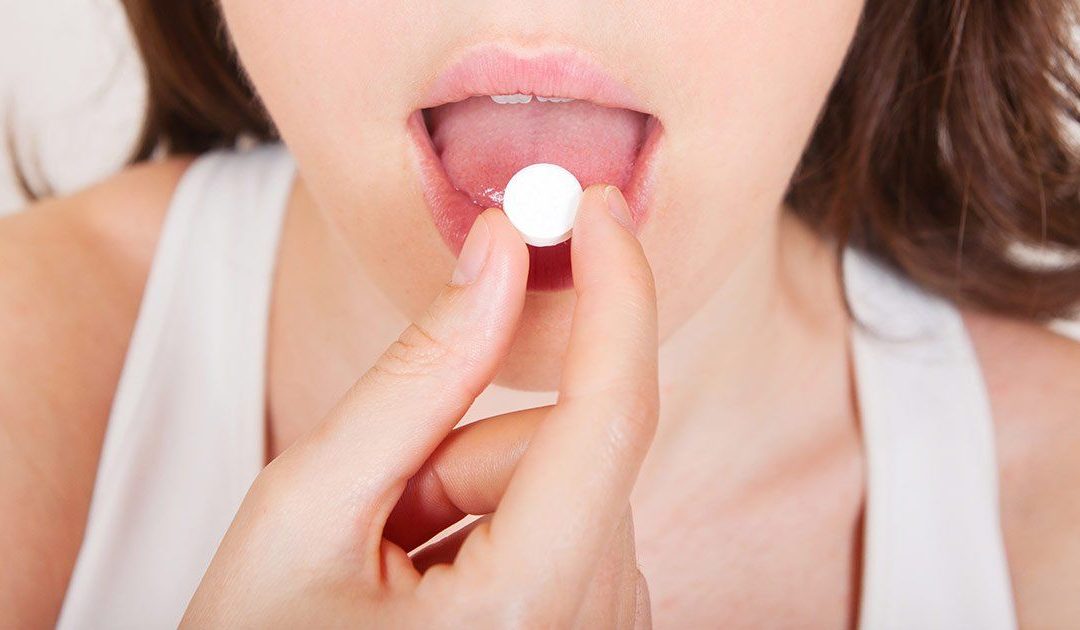Zinc is my favorite micronutrient. So I’m really excited to write about its properties, zinc benefits, and potential toxicities.
So, why should you show any interest in zinc?
Glynn’s Guide
- Supplementing with 25mg/day of zinc will help shorten common illnesses, such as a cold.
- Consuming too much will interfere with other nutrients. It will also have the opposite effect on the immune system.
- Tip: save your cash and buy the store brand of zinc gluconate. It’s typically 50mg. Break it in half before taking. It will work and go along way.
- Zinc is one of the most important catalysts in our bodies chemistry.
- Shellfish, beef, other red meats and organ meats (be careful with too much of these) are the best sources from food.
It’s one of the minerals that when used properly can make a real impact on your health. And it plays a whole lot of roles in our “metabolic stage.”
Likely the most important to you is its ability to help the immune system. Also, its ability to elevate testosterone levels is important to athletes.
Let’s peel back the layers of zinc!
How Does Our Body Use Zinc?
Zinc is predominantly used as a catalyst. In fact, zinc plays a larger role in our enzymatic systems than all other trace minerals combined.
Other uses include:
- Gene expression
- Membrane and cytoskeletal stabilization
- Cell replication
- Structural role in hormones
Your Zinc Requirements
Your needs for zinc are directly proportional to its rate of loss from the tissue. Its losses are also directly proportional to its intake. Funny how that works!
Typically, females lose 0.7-1 mg/day and males lose 1-1.4 mg/day.
That said, female adults typically require a minimum of 12 mg of zinc a day to function well.
Males require 15 mg of zinc a day to function well.
One should also consider that we lack a storage pool of zinc in our bodies. So when we don’t get enough, we have to break down certain enzymes in muscle. This is to transfer the zinc to meet the crucial needs of the body that we cannot live without.
So a deficiency will be reflected as muscular fatigue.
Zinc’s Role as a Catalyst
Of all the reactions that occur in your body, zinc is the most important catalysta catalyst is a substance that increases the rate of a chemical reaction without itself undergoing any permanent chemical change.
It plays such a crucial role in respiration in the use/release of carbon dioxide that even during a deficiency, zinc is not taken from this activity.
Zinc easily adapts to the needs of proteins and enzymes that are responsible for carrying out diverse biological functions. Therefore it participates as a catalyst in the following biological processes:
- Protein metabolism
- Nucleic acid metabolism
- Carbohydrate metabolism
- Lipid metabolism
- Gene transcription
The Best Sources for Zinc
The best sources of zinc are:
- Shellfish
- Beef
- Other red meats
- Organ meats (be careful with too much of these)
Other moderately good sources are:
- Whole grains
- Nuts
- Leafy and root vegetables
Poor sources of zinc are:
- Fruits
- Refined cereals
Zinc from meats is better absorbed than that of plant sources. The amino acids in meat seem to be responsible for improved absorption. There are a few particular amino acids that actually aid in the absorption of zinc. These are of course dominant in meats.
There is a key compound in plants that contribute to the inhibition of zinc absorption. This is why a plant compound may contain plenty of zinc, but be a poor contributor to our needs.
Zinc Interactions with Nutrients
A high intake of zinc supplements inhibits copper absorption. Albeit, we need copper in very small amounts, it’s something to be aware of when supplementing zinc.
Also, if you’re supplementing Iron, you may be inhibiting the absorption of zinc from food or supplement form.
What Systems in Our Bodies Does Zinc Effect?
Zinc plays a crucial role in the following systems:
- Immune System (this is an important one): cell-mediated immunity and generalized host defense
- Protein metabolism
- Biomembranesan enclosing or separating membrane that acts as a selectively permeable barrier allowing some substances to pass while excluding others within living things.
- Enzymesan enzyme is a catalyst, chemical agents that change the rate of a reaction without being consumed by the reaction. When zinc is removed from an enzyme, the enzyme becomes inactive.
- Hormones: Zinc plays a role in insulin response and glucose absorption.
- Cell growth
- Cell replication
- Bone formation
- Skin integrity
- The structural integrity of DNA
- Synthesis of nucleic acidanother name for DNA and RNA
How Zinc Benefits You with the Common Cold
I mentioned earlier that zinc plays a crucial role in the immune system.
So, how does it work to improve the immune system?
Before we consider “the how”, I want to point out that a lot of the research is on individuals with a deficiency. Because a deficiency in zinc lowers our immune response, adding more will always help with one’s immune response. So we have to consider this point when reviewing the research.
So then, how does it help?
But before I go on, let me state that the effects on cytokines released by monocytes and macrophages are beyond this article. Therefore, I will only touch on this subject since I’m not an authority on immunological chemistry.
Onward…
Not only are T suppressor and natural killer cell activitiesa T suppressor is a cell that prevents the immune system from becoming hyperactive and a killer cell is a lymphocyte able to bind to certain tumor cells and virus-infected cells without the stimulation of antigens, and kill them zinc-dependent, but most importantly elevated zinc levels increase levels of interleukin-1 Beta levels (Driessen). Oy! What does that mean?
Interleukin-1 Beta plays a role in mediating autoinflammatory diseases and illnesses.
And (not mentioned previously), cytokines play a role as modulators in the immune system. Zinc is able to influence their complicated work in a good way.
So, let’s just say that zinc elevates the levels of the aspects of our immune system that count when defending common illnesses.
Another interesting regulating mechanism of our immune system involves sequestering zinc in the liver during bacterial infection. This prevents bacteria from having adequate access to zinc for it’s on reproductive needs. It’s a crazy system with serious regulation, isn’t it!
Some Summaries of Good Zinc Research:
Vakili’s conclusion:
“This study showed that zinc supplementation has a beneficial impact on the occurrence of the common cold.”
Driessen states,
“We found that zinc level selectively enhances cytokine induction by lipopolysaccharide (LPS) in a concentration-dependent fashion: as little as 0.0125 mM supplemental zinc led to nearly 50% elevated interleukin-1 beta (IL-1 beta) levels both in polymorphonuclear cells (PBMC) and whole-blood cultures. The secretion of interferon-gamma (IFN-gamma) could be increased more than 10-fold by 0.1 mM zinc.”
This might be weak, but Veverka reported:
“Self-reported symptoms as recorded by a weekly web site survey revealed that supplemented participants experienced significantly more symptom-free episodes than those in the placebo group (p = 0.01). No significant differences were found between groups in terms of physician-diagnosed cases (p = 0.99). Higher zinc dosage may be warranted to confer a protective effect under more challenging immunological conditions.”
Pasad states,
“We hypothesize that the beneficial effects of zinc may be due to its antioxidant and anti-inflammatory properties and its effect on intercellular adhesion molecule (ICAM)–1, which is known to be a major cellular receptor for rhinovirus.”
Zinc Benefits for the Athlete
Zinc has a real impact on testosterone levels.
It’s not necessary to combine zinc with magnesium. But there is plenty of research that shows supplementing with the two elevates testosterone. Nonetheless, zinc plays a serious role in androgen metabolism and the interaction of steroid receptors.
Kilic states,
“Both resting and exhaustion total and free testosterone levels following 4-week zinc supplementation were found significantly higher than the levels (both resting and exhaustion) measured before zinc supplementation (p<0.05). CONCLUSION: Findings of our study demonstrate that exhaustion exercise led to significant inhibition of both thyroid hormones and testosterone concentrations, but that 4-week zinc supplementation prevented this inhibition in wrestlers. In conclusion, physiological doses of zinc administration may benefit performance.”
Brilla states,
“Both zinc and magnesium supplementation have been shown to significantly decrease the levels of the catabolic “stress” hormone, cortisol. In a double-blind, randomized study of 23 triathletes, serum cortisol was lower in the magnesium-supplemented group before and after competition compared to controls (24). The authors concluded that the magnesium supplementation resulted in a reduced stress response without affecting competitive potential.”
Brilla also states,
“Direct muscle function studies with manipulation of zinc status over a short time interval of 3 weeks demonstrates that zinc status positively alters the total work capacity of skeletal muscle in humans.”
It’s also important to mention that long-distance endurance training can cause lower serum zinc levels. If dietary intake is not sufficient to replace losses, endurance may be hampered.
So should athletes consume more zinc than a non-athlete? Yes, during times of heavy training it’s beneficial for both endurance and maintaining testosterone levels.
Zinc benefits for men
Pending a situation where there is no deficiency, there are a few benefits for men to supplement zinc. But just because some research states the following benefits, doesn’t mean you should supplement with pharmacological doses indefinitely. See the toxicity (albeit mild) section below. The zinc benefits for men include:
- Increased testosterone level
- Lower risk of prostate enlargement
These two benefits alone are worth periodically adding additional zinc to any males regimen.
Zinc benefits for women
For women, it’s more important to obtain zinc from a balanced diet.
I did find several studies associating a greater incidence of cardiovascular disease in women with an excess intake of zinc beyond dietary needs. But this information does not apply to men.
This is an important consideration.
Also, I won’t get into the importance of eating a well-balanced diet during pregnancy, but there is an upregulation of zinc absorption in pregnant women. In other words, their metabolism is making a clear statement that more is required. Again, not something to cover in this article.
The only time I would consider women supplementing additional zinc is when their ill and trying to help their immune system.
How much zinc should I take?
Taking 17-29 mg/day of zinc in athletes has been shown to prevent issues caused by zinc losses during training. That level has also been shown to elevate testosterone levels.
So how much zinc should you take if you’re not an athlete?
The safest amount of zinc you should take is 25mg/day.
Here’s a tip!
Buy a store brand of 50 mg zinc and break it in half.
It will cost little, go far, and have the same effect!
Symptoms of Zinc Deficiency
What happens if you consistently consume less than your daily requirements?
Before I list the issues, please note that very few of us are deficient in zinc in this country. This article is more focused on how we can use zinc benefits to enhance our lives.
- Growth retardation (applies to children of course)
- Decreased immune response
- Delay in sexual and skeletal maturation (again, applies to children)
- Hair loss
- Increased susceptibility to infections
- Behavioral changes
- Decreased insulin response and impaired glucose tolerance
- Reduced basal metabolic rate
- Hypogonadismreduction or absence of hormone secretion or other physiological activity of the gonads (testes or ovaries)
When we consume less than adequate amounts on a daily basis, we can use zinc from less crucial systems. But that doesn’t go too far!
Zinc Supplements Causing Toxicity
Functional impairments occur at levels around 150 mg/day. This is a dangerous situation.
- Acute levels greater than 200 mg/day will typically cause vomiting.
- Chronic levels greater than 150 mg/day may result in lower HDL levels, gastric erosion, and a depressed immune function. The last point is important for those who think more is better when supplementing to improve your immune system.
- Chronic levels as low as 50 mg/day may eventually lead to a copper deficiency.
Adults should not exceed 40 mg/day on a consistent basis to stay within safe parameters. That number is a combination of both food and supplementation.
I caution you against long term supplementation with zinc over 25mg/day. The resulting copper deficiency will cause other problems and a weakened immune system.
If you noted earlier, consistent high doses of zinc day after day for a long period will depress the immune system. Exactly what you don’t want!
Conclusion on Zinc Supplmentation
Perhaps you can see why zinc is one of my favorite micronutrients! As far as I’m concerned, a mineral that will help shorten a common illness and improve athletic performance/recovery, deserves an A+ in my book.
Just be careful not to overuse zinc. Supplementing with more than 25mg/day will cause issues with other nutrients, especially copper. And believe it or not, too much will have the opposite effect on your immune system.
So, let’s embrace this wonderful catalyst and make sure we’re getting enough!
Questions for You
Have you tried supplementing with zinc during a cold?
If so, what kind of results did you see?
Let me know in the comments below.
Zinc Benefits FAQs
How zinc helps colds?
It elevates specific components in the immune system that count when defending common illnesses.
Which zinc is best absorbed?
Zinc gluconate is easily absorbed, affordable, and easy to come by.
Where zinc is absorbed?
It is predominantly absorbed in the jejunum (small intestine).
Can zinc supplements cause acne?
Since supplementing with zinc elevates testosterone levels, yes it can cause a small rise in acne.
Zinc and testosterone levels?
Yes, 25mg/day of zinc has been shown to elevate testosterone levels. The amount varies by the individual because so many variables come into play.
Which zinc should I take?
A well-rounded diet helps. But when trying to shorten the life of a cold, 25mg/day of zinc gluconate will work just fine.
Zinc benefits for flu?
Because extra zinc helps improve the immune system, it is helpful in combating the flu.
References and Resources
L. R. Brilla & Victor Conte, Effects of a Novel Zinc-Magnesium Formulation on Hormones and Strength, Journal of Exercise Physiology, Volume 3 Number 4 October 2000
C Driessen, K Hirv, H Kirchner, and L Rink, Zinc regulates cytokine induction by superantigens and lipopolysaccharide, Immunology, 1995 Feb; 84(2): 272–277.
G A Eby, D R Davis, W W Halcomb, Reduction in duration of common colds by zinc gluconate lozenges in a double-blind study, Antimicrobial Agents and Chemotherapy Jan 1984, 25 (1) 20-24.
Kilic M, Baltaci AK, Gunay M, Gökbel H, Okudan N, Cicioglu I, The effect of exhaustion exercise on thyroid hormones and testosterone levels of elite athletes receiving oral zinc. Neuro Endocrinology Letters, 01 Feb 2006, 27(1-2):247-252.
Kilic, M., Baltaci, A.K. & Gunay, Effect of zinc supplementation on hematological parameters in athletes M. Biol Trace Elem Res (2004) 100: 31
Ehab S. Eshak, Hiroyasu Iso, et al., Associations between copper and zinc intakes from diet and mortality from cardiovascular disease in a large population-based prospective cohort study, The Journal of Nutritional Biochemistry, Volume 56, June 2018, Pages 126-132.
K Michael Hambidge, Leland V Miller, Manolo Mazariegos, Jamie Westcott, Noel W Solomons, Victor Raboy, Jennifer F Kemp, Abhik Das, Norman Goco, Ty Hartwell, Linda Wright, Nancy F Krebs, Upregulation of Zinc Absorption Matches Increases in Physiologic Requirements for Zinc in Women Consuming High- or Moderate-Phytate Diets during Late Pregnancy and Early Lactation, The Journal of Nutrition, Volume 147, Issue 6, June 2017, Pages 1079–1085
Klaus-Helge Ibs, Lothar Rink; Zinc-Altered Immune function, The Journal of Nutrition, Volume 133, Issue 5, 1 May 2003, Pages 1452S–1456S
Prasad, Ananda S, Zinc: role in immunity, oxidative stress and chronic inflammation, Current Opinion in Clinical Nutrition and Metabolic Care: November 2009 – Volume 12 – Issue 6 – p 646–652.
Ananda S Prasad, Frances W. J Beck, Bin Bao, Diane Snell, James T Fitzgerald; Duration and Severity of Symptoms and Levels of Plasma Interleukin-1 Receptor Antagonist, Soluble Tumor Necrosis Factor Receptor, and Adhesion Molecules in Patients with Common Cold Treated with Zinc Acetate, The Journal of Infectious Diseases, Volume 197, Issue 6, 15 March 2008, Pages 795–802.
Sunil Sazawal, Robert E. Black, Sanju Jalla, Sarmila Mazumdar, Anju Sinha, Maharaj K. Bhan, Zinc Supplementation Reduces the Incidence of Acute Lower Respiratory Infections in Infants and Preschool Children: A Double-blind, Controlled Trial, Pediatrics, July 1998, Volume 102 / Issue 1.
Vakili, Rahim et al. Effects of Zinc Supplementation in Occurrence and Duration of Common Cold in School-Aged Children during Cold Season: a Double-Blind Placebo-Controlled Trial. Iranian Journal of Pediatrics, [S.l.], p. 376-380, 2009.
Donald V.Veverka, Candy Wilson, Michael A.Martinez, Rachael Wenger, Amanda Tamosuinas, Use of zinc supplements to reduce upper respiratory infections in the United States Air Force Academy Cadets, Complementary Therapies in Clinical Practice, Volume 15, Issue 2, May 2009, Pages 91-95.
Rita Wegmüller, Fabian Tay, Christophe Zeder, Marica Brnić, Richard F. Hurrell; Zinc Absorption by Young Adults from Supplemental Zinc Citrate Is Comparable with That from Zinc Gluconate and Higher than from Zinc Oxide, The Journal of Nutrition, Volume 144, Issue 2, 1 February 2014, Pages 132–136.
Wintergerst E.S., Maggini S., Hornig D.H., Immune-Enhancing Role of Vitamin C and Zinc and Effect on Clinical Conditions, Ann Nutr Metab 2006; 50:85–94.


![Zinc Benefits are Amazing [You Should Supplement] 1 Best Sources of Zinc](https://www.gymfailedyou.com/wp-content/uploads/2019/01/best_zinc_sources.jpg)


